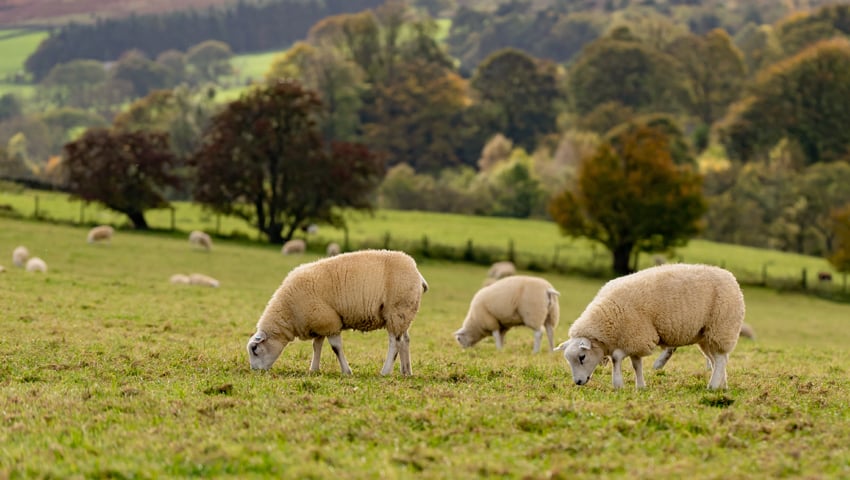The Secretary of State has permitted the use of 3 unauthorised bluetongue serotype 3 (BTV-3) vaccines within the United Kingdom as of 4th September.
The vaccines are suppressive, meaning they will reduce some of the clinical signs experienced by animals with the disease. They do not prevent infection.
These vaccines must only be used with an appropriate licence being in place.
Available licences to allow use will either be geographically targeted general licences, initially in high risk counties as part of a phased approach, or specific licences which can be applied for through the Animal Plant Health Agency (APHA). We will publish these imminently.
National Sheep Association Chief Executive, Phil Stocker, said, “This is a welcome and very necessary step to help control BTV-3 in the UK. Although the vaccines are suppressive in nature rather than preventative they are expected to dampen symptoms, reduce suffering and mortality, and hopefully reduce the risk of further transmission. But as they will not prevent infection entirely, animals within control areas will still be subject to movement controls and trade restrictions.”
The NSA has reiterated the fact that the vaccines will be only available through veterinary prescription, so initial interest should be via farmers’ private vet practice.
Unlike some of the authorised BTV vaccines for other BTV serotypes the BTV-3 vaccines reduce rather than prevent viraemia (presence of BTV virus in the blood). This means that they may not prevent animals from being infected or becoming infectious, rather depending on the vaccine their claims include reduction or prevention of clinical signs experienced or mortality. For this reason, all movement controls and trade restrictions in place will still apply to vaccinated animals.
Vaccination status will not affect movement restrictions which remain in place and apply to all ruminants and camelids moving out of the restricted zone and to the movement of their germinal products within the zone. Farmers are reminded to only move animals within the extended zone where this is absolutely necessary.
England
Farmers in England are urged to contact their private veterinarian if they want to use any of the available BTV-3 vaccines.
Following several confirmed cases of Bluetongue virus BTV3 across Norfolk, Suffolk and Essex, the UK Chief Veterinary Officer has declared a bluetongue restricted zone across the region to mitigate the risk of further cases of disease occurring. Rolling information on the latest situation and number of cases is on gov.uk.
Biosecurity Minister Baroness Hayman said, “The permitting of these vaccines forms one part of our efforts against this highly infectious disease.
“We are working at pace in order to provide farmers with everything they need to protect their livestock and businesses and would recommend they contact their veterinarians for access to the vaccines. Farmers are also reminded that free testing remains available.”
Chief UK Veterinary Officer Christine Middlemiss said, “These vaccines are an important step forward and will aid in reducing clinical signs in animals and the impact of disease on farms but it is not a protective vaccine, so we are still urging farmers to follow all of our guidance in order to prevent the disease spreading to their herds and any further.
“I urge farmers to contact their veterinarians if they wish to use the vaccines and to continue monitoring their animals frequently for clinical signs and report suspicion of disease immediately to the Animal Plant Health Agency.”
Wales
Following confirmation of new cases of bluetongue virus in England, the Chief Veterinary Officer for Wales has urged farmers to be alert to signs of the virus.
Richard Irvine, Wales’ Chief Veterinary Officer, said, “As bluetongue has been recently confirmed in England, I would urge all keepers to take action now to protect their herds and flocks and help keep disease out of Wales. They should also be aware of how to spot bluetongue and report any suspected cases immediately.
“Wales has never had a case of Bluetongue, but with the changing situation, we are encouraging people to be vigilant and prepared for Bluetongue.
“A stakeholder workshop and a vet webinar was held on 4th September to help raise awareness of the disease. I am grateful to all of our partners in the livestock industry and in veterinary practice for their support in disseminating information about Bluetongue and their ongoing vigilance for this disease.”
